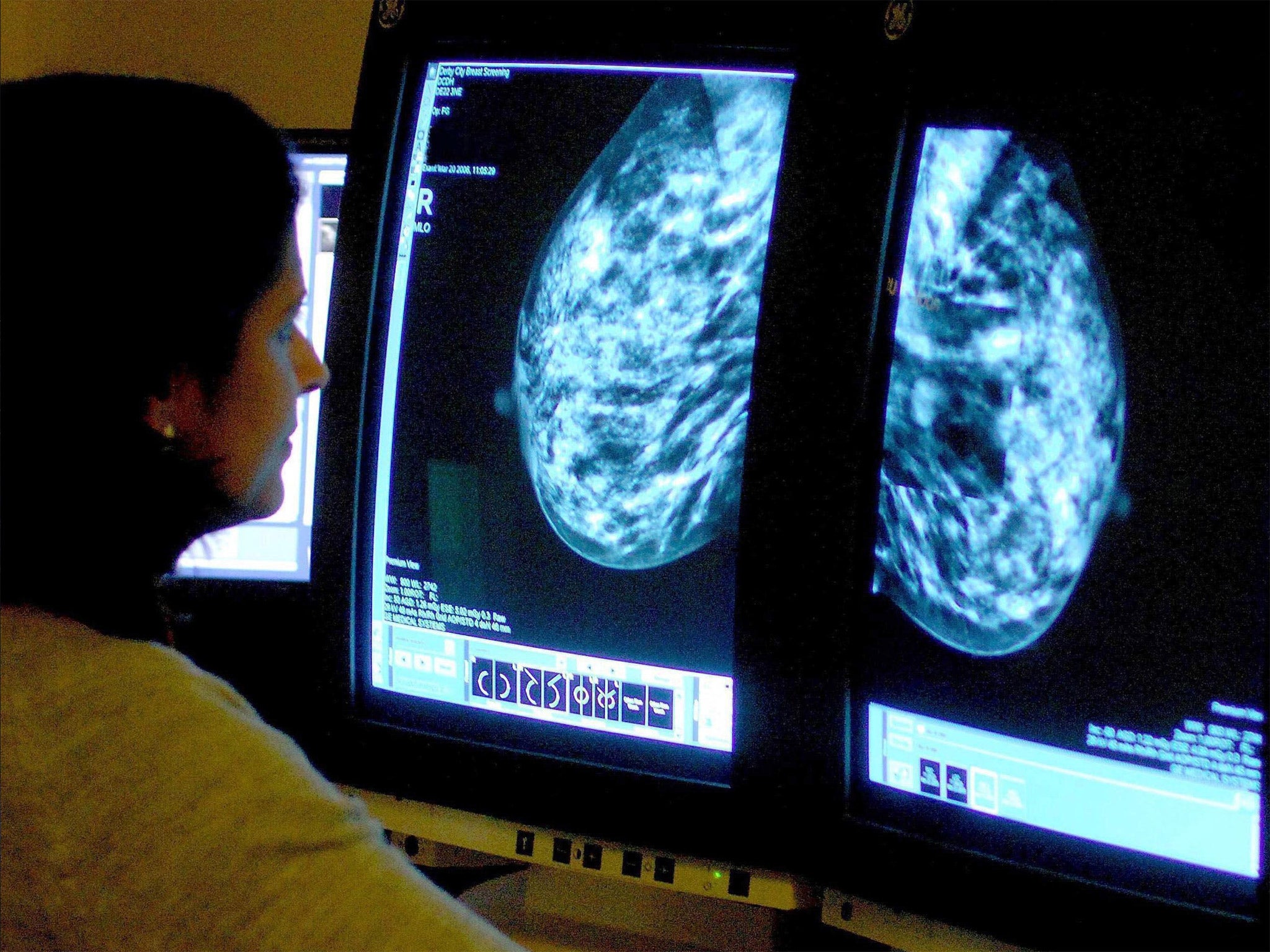Scientists discover mechanism that could stop breast cancer spreading to bones
Blocking off enzymes could halt the spread of the disease in some patients

Scientists have uncovered a mechanism that could be key to stopping breast cancers from spreading to bones – a discovery that offers hope of stopping life-threatening cancers from progressing.
Before a cancer spreads, an enzyme is released by the tumour in the breast damages bones, ‘preparing’ them for the arrival of cancer cells, researchers working at the Institute of Cancer Research, London found.
The majority of deaths from breast cancer occur after the cancer has spread to other parts of the body and the bones are the most common site for cancer spread, also known as metastasis.
Experts hope that by blocking off the enzyme, called LysYl Oxidase, or LOX, they could halt the spread of the disease in some patients. They also found that by treating mice with bisphosphonates, drugs already used to treat people with fragile bones, they were able to prevent the spread of cancer.

The findings only apply to patients with a type of breast cancer known as oestrogen receptor (ER) negative breast cancer. Around 30 per cent of breast cancers are ER negative, and are often harder to treat.
Dr Alison Gartland, of the University of Sheffield’s department of human metabolism, who co-led the study, said researchers were “really excited” by the results.
“This is important progress in the fight against breast cancer metastasis and these findings could lead to new treatments to stop secondary breast tumours growing in the bone, increasing the chances of survival for thousands of patients,” she said.
“The next step is to find out exactly how the tumour-secreted LOX interacts with bone cells to be able to develop new drugs to stop the formation of the bone lesions and cancer metastasis. This could have implications for how we treat other bone diseases too.”
The study, published in the journal Nature, was co-led by researchers from the University of Copenhagen.
Breast cancer kills 12,000 women in the UK every year, and most of those who die have a cancer that has metastasised – also known as secondary breast cancer. In about 85 per cent of secondary breast cancer patients, the cancer spreads to the bones.
Katharine Woods, senior research communications manager at the newly-merged Breast Cancer Campaign and Breakthrough Breast Cancer charities, said: “By unveiling the role that the protein LOX is playing, these results open up a whole new avenue for research and treatments that could stop breast cancer spreading to the bone.
“The reality of living with breast cancer in the bone is a stark one, which leaves many women with bone pain and fractures that need extensive surgery just when they need to be making the most of the time they have left with friends and family.”
Join our commenting forum
Join thought-provoking conversations, follow other Independent readers and see their replies
Comments